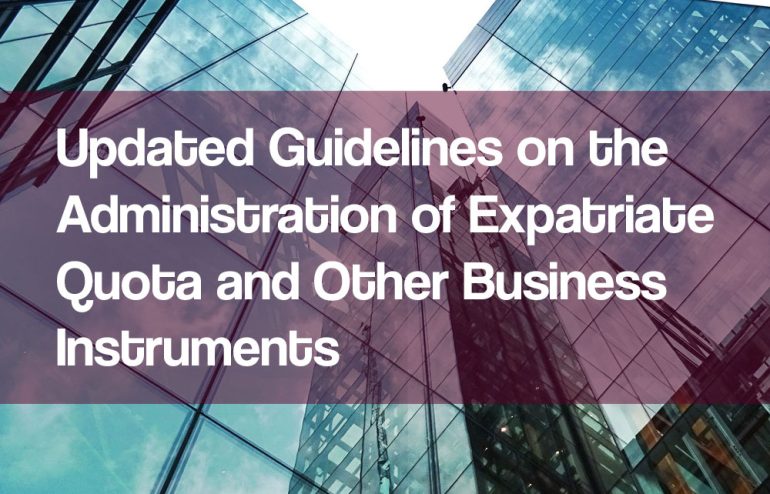In the wake of COVID-19, in Nigeria, businesses that provide non-essential services have been forced to shut down operations whilst businesses that do provide essential services are mandated to operate under the restrictive guidelines of the National Centre for Disease Control (NCDC).
In consequence businesses are faced with the imminent loss of: revenue; profits; existing and future business, which in turn is likely to lead to forced reduction in staff working hours, shortage/non-payment of salaries, and mass layoffs.
Guy Ryder the Director-General of the International Labour Organisation (ILO) recently said “ILO estimates are that as many as 25 million people could become unemployed, with a loss of workers’ income of as much as USD 3.4 trillion. However, it is already becoming clear that these numbers may underestimate the magnitude of the impact”.
Undoubtedly in the coming months and years Nigeria’s National Industrial Court (NIC) is bound to be inundated with an unprecedented number of employment dispute suits. Inevitably, many companies will be faced with the possibility of substantial litigation risks resulting from the hard decision to reduce working hours, suspend, and lay off employees. It is therefore imperative for companies to be well equipped with answers to key questions on the relevant aspects of Nigeria’s labour laws and procedure vis -a- vis contracts of employment, the relevant terms of the contract of employment, sick pay, suspension, termination/layoffs, and the modes of dispute resolution, amongst other matters.
Relevant laws and regulations
Significant legislation that governs the employment of persons, in Nigeria, are:
- The Constitution of the Federal Republic of Nigeria (Promulgation) Act (Chapter C23, Laws of the Federation of Nigeria 2004, as amended);
- The National Industrial Court of Nigeria Act 2006;
- The Labour Act, Chapter L1 Laws of the Federation of Nigeria 2004;[1]
- The Employees’ Compensation Act 2010;
- The Factories Act, Chapter F1 Laws of the Federation of Nigeria 2004;
- The Industrial Training Fund Act, Chapter I9 Laws of the Federation of Nigeria 2004, (as amended);
- The Immigration Act No. 8, 2015;
- The National Health Insurance Scheme Act, Chapter 42 Laws of the Federation of Nigeria 2004;
- The National Housing Fund Act, Chapter N 45 Laws of the Federation of Nigeria 2004;
- The Nigerian Oil and Gas Industry Content Development Act 2010
- The Pension Reform Act 2014;
- The Personal Income Tax Act (Chapter P8 Laws of the Federation of Nigeria 2004, as amended by the Personal Income Tax (Amendment) Act 2011);
- The Trade Unions Act, Chapter T14 Laws of the Federation of Nigeria 2004 (as amended).
- The Trade Disputes Act, Chapter T 8 Laws of the Federation of Nigeria 2004
Key Questions
1. What are the implied duties owed by an employer to employees, during the lock down?
An employer owes its employees the duty to fulfil the terms of the contract of employment and to provide work within a safe and reasonable working environment. Therefore, for those employees that work in the essential service sectors the employer is expected to engage all necessary measures to protect the health and safety of all its employees at the place of work and during the course of work.
2. Is an employee who has tested positive for COVID-19 entitled to sick leave?
Under section 16 of the Labour Act a worker is entitled to 12 days of paid sick leave in every calendar year provided the illness is temporary and certified by a registered medical practitioner. Though in addition the Act recognises maternity leave (and in some states of the Federation paternity leave), generally there are no provisions for parental leave or leave to care for sick family members.
Furthermore, the Employees’ Compensation Act appears to advocate for adequate compensation in respect of employees who may have been infected by the virus during the course of employment.
In relation to employees not covered under the Labour Act the terms of the contract of employment and employee handbook is usually referred to, in order to determine the extent of entitlement to sick leave.
3. In the wake of the unprecedented changes caused by the epidemic, under the law, are parties permitted to review the contract of employment?
Under the Labour Act there are no specific provisions for the review of the contract of employment. However, parties are, under the principles of mutuality, at liberty to review the terms of their contractual relationship.
4.What is the legal position with respect to discrimination on grounds of health status (i.e. contracting COVID-19)?
Unlike the HIV and AIDS (Anti-discrimination) Act 2014, – which prohibits employers from discriminating directly or indirectly against employees on the basis of their HIV status or HIV-related illness – there are no specific provisions upon which an employee may claim discrimination in relation to contracting the COVID-19 disease or any disease of the like.
However, in the contract of employment employers are at liberty to stipulate the need for regular health checks and stable health as a condition for continued employment.
5. Relevant statutory employee benefits to bear in mind
According to the Pension Reforms Act 2014 all employers are mandated to procure a group life insurance policy in favour of each employee for a minimum of three times the annual total emolument of the employee. In the event of default the employer shall be liable for claims arising from the death of the employee.
Under the Employee Compensation Act 2010 a scheme based on the employees’ compensation fund and administered by the Nigeria Social Insurance Trust Fund provides compensation for employees that have sustained injuries or disabilities resulting from an accident, or infections/disease contracted in the course of employment.
The Labour Act – which relates to Workers as defined under the Act – suggests that employers with a minimum of 10 employees may make contributions under the National Health Insurance Scheme. Clearly this does not apply to employers of non-workers.
6. Trade Unions
Under the trade unions Act employers are mandated to recognise registered trade unions and under the rules on collective bargaining the members of registered trade union must establish a body of representatives who may represent trade unions when engaging discussions with the employer.
The membership of trade unions is voluntary and no employee must be forced to join or be victimised for refusing to join or remain.
The terms of agreements reached between the employer and the trade union representatives are set out in a collective bargaining agreement, which form part of, and will be read together with, the employment contracts of employees who are members of trade unions.
7. Can an employer terminate a contract of employment without reason and notice?
Generally, the employer is entitled to terminate the contract of employment without reason, provided termination is in accordance with the terms of employment. Although the National Industrial Court of Nigeria has on a number of occasions indicated the need to state the reasons for the termination, in accordance with international standards and best practices.
It is however, pertinent to state, that a worker under the Act is entitled to be given notice of termination or his/her salary in lieu of notice. Pursuant to section 11(2) of the Labour Act the respective periods of notice are set out as follows:
- one day notice, where the contract has continued for a period of three months or less;
- one week’s notice, where the contract has continued for more than three months but less than two years;
- two weeks’ notice, where the contract has continued for a period of two years but less than five years; and
- one month’s notice, where the contract has continued for a period of five years or more.
Subsection (3) of the Act requires any notice for a period of one week or more to be in writing. Furthermore, parties are at liberty to agree to longer notice periods, in the contract of employment.
It is important to bear in mind some exceptions. Under the Act (Section 54(4) to be precise), any female worker who is absent due to maternity leave, or any longer period as a result of ill health emanating from the pregnancy or confinement and which renders her unfit for work, cannot be disengaged.
In relation to non-workers (employees not covered by the Act as described above) the right of termination and period of notice will be strictly guided by the contract of employment and where there is no written contract the Court will rely on applicable implied terms which may be inferred from the conduct of parties and surrounding circumstances.
On the contrary the contract of employment may be terminated for cause, usually owing to criminal acts, gross misconduct, sexual harassment, assault and the like. Under such circumstances, in what is referred to as a dismissal, the law does not necessarily require the employer to pay the employee’s salary and other benefits, upon condition that the employee is provided with ample opportunity to defend allegations levelled against him/her by the employer.
8. Under what circumstances can the contract of employment be terminated on grounds of redundancy and does the COVID-19 pandemic fall within such grounds?
Redundancy is described, by the Act, as an involuntary and permanent loss of employment caused by excess of manpower. Section 20 of the Act provides that an employer in the event of redundancy shall take the following steps:
- inform the trade union or workers’ representative concerned of the reasons for and the extent of the anticipated redundancy;
- the principle of “last in, first out” shall be adopted in the discharge of the particular category of workers affected, subject to all factors of relative merit, including skill, ability and reliability; and
- the employer shall use best endeavours to negotiate redundancy payments to any discharged worker(s) not protected by regulations.
It is expected that, “workers” not covered by the Act will be subject to the relevant contract of employment or any implied term of contract applicable in the industry.
Clearly by the definition of redundancy it will be difficult for employers, seeking to reduce their work force in the wake of COVID-19, to terminate contracts of employment by reason of redundancy.
The Emergency Economic Stimulus Bill, 2020
As part of its efforts in mitigating the economic effects of the COVID-19 pandemic, the House of Representatives passed the Emergency Economic Stimulus Bill, 2020 to put in place certain palliative measures. Section 3 of the Bill provides that any employer duly registered under Part A or Part B of the Companies and Allied Matters Act (CAMA) 2004[2], which maintains the same employee status without retrenching their staff as at March 1, 2020 till December 31, 2020 shall be entitled to 50 percent income tax rebate on the total of the actual amount due or paid as Pay As You Earn (PAYE) Tax under the Personal Income Tax Act 2004.[3]
However, Section 6 of the Bill goes on to state that this does not apply to employers partly or wholly subject to the Petroleum Profit Tax Act[4].
The following circumstances shall not preclude the rebate to employers under the Section 3:
- Where an employee dies of natural causes;
- Where an employee voluntarily leaves the employment or has already indicated interest to leave the employment before March 1, 2020; or
- Where the employer breaches the Labour Act.
The rebate period can also be extended by the President of the Federal Republic of Nigeria for the duration during which COVID-19 remains an urgent and severe public health emergency.[5] However, this must be ratified by a majority of the members of the National Assembly.
Conclusion
Mass sackings and employment review is inevitable. The resultant flurry of settlement negotiations and litigation is equally certain.
What remains uncertain is the readiness of many employers to foresee the extent of the challenge and prepare adequately in order to mitigate litigation risks.
Further losses are bound to be better managed if all relevant heads of human resources and legal departments plan adequately for the eventuality
For more information, contact:
GRF Dalley & Partners
Lagos Office:
Gabsdall House (2nd – 4th Floor)
26, Igbosere Road
Port Harcourt Office:
13, Finima Street,
Old G.R.A.
Tel: +23414549824
Email: inq@grfdalleyandpartners.com
Follow us on social media:
Twitter: @GRFDALLEY
LinkedIn: G.R.F Dalley & Partners
Notes:
[1]The Labour Act, is limited in its scope of application being it only regulates employment of ‘workers’ which is defined under the act as employees that perform manual labour or clerical work. Non-workers are those who perform administrative, executive, technical and/or professional duties. Though these group of employees are not within the scope of the Labour Act they are generally subject to the terms of their respective contracts of employment.
[2] Cap. C20, Laws of the Federation of Nigeria, 2004
[3] Cap. C8, Laws of the Federation of Nigeria 2004 (as amended)
[4] Cap. P13, Laws of the Federation of Nigeria 2004
[5] Section 7, Emergency Economic Stimulus Bill 2020



